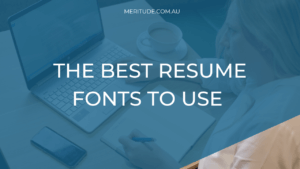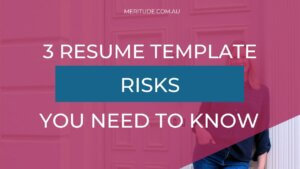Job Interview—Make Your Best Impression
It’s 10am, Wednesday morning. You’re at your desk sipping on your second latte and starting to feel the caffeine really kick in. Skimming through your email, your thoughts are suddenly interrupted by the phone ringing.
Slightly confused and undecided about whether to screen the call and let voicemail handle it, you decide to answer. It’s Jill from XYZ Company’s HR department calling to invite you for an interview. At first, you are elated and excited (after all, you only sent your application in last week), then nervousness and doubt sets in.
Those nagging thoughts run through your head……”am I good enough?” “will I like the interviewer?” “what questions will they ask?” “what questions should I ask?”
Job interviews can be stressful, so it’s only natural to have some nerves. After all, they keep you alert, focused and show you care about the outcome.
Once you secure the interview, conducting research and preparing yourself is critical for success. So many clients I work with openly admit they do not prepare for a job interview. But, if you can spend just 30-60 minutes on interview preparation, you’ll significantly increase your chances of securing the job.
Whilst there are many techniques I can offer, the 6 below make it into my top 10:
#1 Research the company
No job search plan would be complete without proper research. Researching the company gives you vital information that you can use to your advantage. In addition, it will ensure you are ready for the “what do you know about our company?” question.
Ideally, what you are looking for is to uncover the companies needs and identify how you can help them.
Key places to start are:
- The company website — specifically, the “About” page, “Media” section (if there is one), blog and information about their products and services.
- Company Facebook Page — look at the content in the company posts, but also look at what other people’s comments. Can you identify any potential problems that need solving?
- Job listings — look at what other job postings are open at the company — these can help you identify growth opportunities in the company.
- The interviewer — You can often find this information on LinkedIn, Facebook, or through a Google search. Do you have any connections in common? What about previous employment history or hobbies?
These are just a few examples, but you get the idea.
#2 Understand the position
Granted, some companies write fluffy job ads to describe positions which give you little context to what the job is really all about. But that shouldn’t stop you from attempting to gather as much intelligence as possible about the position as possible before the interview. How? well here is a few ways to get you started:
- Google — Simple, but highly effective. Type in the name of the position and in a separate search, the position and company name. You’ll be surprised what information you can find out.
- LinkedIn — Do the above for LinkedIn, see if you can find out who is currently in the position or previously held the position and read how they describe the position.
- Colleagues — Is there anyone else you know doing the same or similar role that you can talk to?
#3 Conduct a personal inventory
Taking some time to think about and write down some key points about your best strengths, qualifications, technical and transferable skills will help with recall during the interview when you are fighting to get on top of nerves.
#4 Be prepared to answer behavioural questions
Corporate and Government interviews will typically contain these questions. Behavioural interview questions are about uncovering past behaviour and call for examples on how you handled them.
Government interviews are a little easier in that you have a reasonable idea of what questions will be asked based on the selection criteria asked for in the job ad. Corporate companies tend to base their behavioural questions around their mission and values. For example;
if one of the values is “Integrity” then a behavioural question might be;
“tell us about a situation where you felt that your work ethics have been compromised. What was the result? What did you learn?”
Start by identifying these through the company’s website and then flesh out a few examples of where you have demonstrated excellence in these areas.
#5 Prepare your questions
Five (5) — That is the number of questions you should have prepared when you go in for an interview. Expect to have several answered during the interview and expect to ask 2 maybe 3 questions to the interviewer.
Having 5 questions prepared gives you enough to ask if some have already been answered and reserves.
#6 Contact your references
This is one that people often forget, especially when we are actively job searching and using references frequently. But each time you are considering using someone as a reference you need to ask them if they are happy to be a reference and tell them about the position.
It’s also best practice to call them after you’ve had the first interview and give them a heads up on who might be calling them and when (if you have those details).
Action Points
To get your ideal job, you must first land a job interview and these tips will help ensure you get there.





